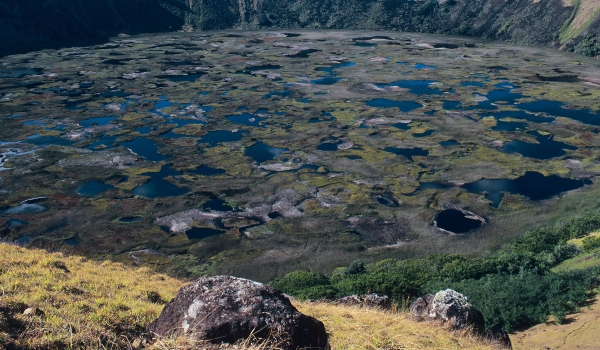Using AI to control energy for indoor agriculture
30 September 2024
Published online 9 October 2014
Researchers from the American University of Beirut (AUB) identify an algae species that can be a possible source of superfood and cheap renewable energy.

© ImageSource
The researchers from the American University of Beirut (AUB) were working as part of an EU-funded project, launched in 2012, set to identify cheap renewable sources of energy. AUB and ALMEE (Lebanese Association for Energy Saving and for Environment) from Lebanon are among 12 organizations from six Mediterranean countries collaborating on the study.
They found the biofuel yield of the algae in the study was not sufficient and produced less oil that can be converted into biodiesel than a strain being used for comparison. Only one mixed algae bloom, from Saida, produced a similar level of oil to the reference isolate.
“We are experimenting with unialgal isolates and with natural blooms that contain a mixture of microalgae. Some of the most promising are those containing Micractinium, Tetraselmis and Amphora spp,” explains Yusuf Abou Jawdah of the Faculty of Agricultural and Food Sciences in AUB and principal investigator of the study. But while trying to produce fuel from the algae, Abou Jawdah came across an interesting secondary find; the algae was packed with proteins and other food supplements.
According to the study, one of the isolated microalgae from the Jounieh coast contains 25-30% omega-3 and omega-6 fatty acids of the total lipids. The poly unsaturated fatty acid lipid content like the omega-3, says Abou Jawdah, was higher than those normally reported from microalgae across other Mediterranean countries.
Microalgae from Jbeil showed high levels of protein at 19% similar to that found in meat sources, usually 20%.
This microalgae could potentially be used as a food for humans or as animal feed; especially so, if its protein content may be doubled by manipulating the culture conditions, such as increasing the level of ammonium nitrogen, explains Abou Jawdah.
“The level of biomass produced and the content of oil of the microalgae that have been so far isolated and studied in our lab, are below what may be expected for economical production of biofuel. All unialgal isolates gave a lower biodiesel yield,” says Abou Jawdah.
The Lebanese team has two objectives: biodiesel production and possible co-products. Using current technologies, the cost of biodiesel production from microalgae is still considered high compared to diesel, but the gaining co-products may help improve the profitability. A multidisciplinary team is being formed to study bioactive substances as anti-bacterial, anti-cancerous, anti-inflammatory properties from the algae.
Abou Jawdah says that it is of major importance to identify the major bioactive substances that may be isolated from microalgae and that have a high market value.
But, Imad P. Saoud, professor of aquatic sciences at AUB said: “The main objective of [this] research is biofuel and how we can produce biofuel from algae, cheap enough to compete against fossil fuels.
“I think that Abou Jawdah is exploring this, and may find solutions for problems such as climate change, global warming, and the fact that we’re running out of cheap fuel sources. The research is about biofuel, but we never know what may be discovered in the process; perhaps a new kind of antibiotic."
doi:10.1038/nmiddleeast.2014.245
Stay connected: